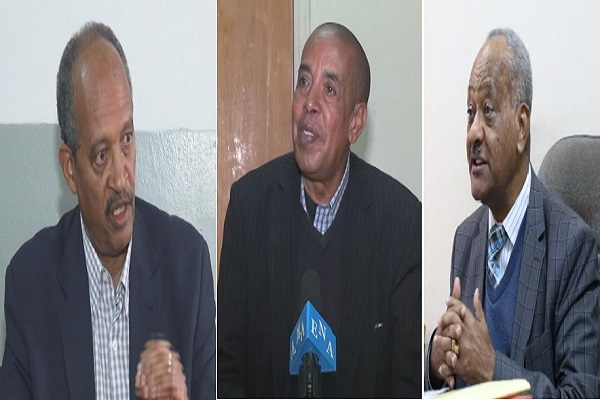Normalizing Ethio-Eritrean Relations to Enhance Regional Integration: Scholars - ENA English
Normalizing Ethio-Eritrean Relations to Enhance Regional Integration: Scholars

Addis Ababa July 04/2018 Normalizing the relationship between Ethiopia and Eritrea is pivotal in reuniting the brotherly people of the two countries and far more in promoting regional integration, scholars said. In an exclusive interview with ENA, Professor of History at Addis Ababa University, Tesema Ta’a said the relationship between Ethiopia and Eritrea “goes far beyond formal neighborhood, these are brothers living in two different countries.” He added that it is extremely important for both countries to end enmity and continue to be inter-dependent in terms of economic and diplomatic relations. “I think it’s extremely very important for both countries socially, politically and economical to end the enmities and continue to be inter-dependent in terms of economical relationship, diplomatic relationship, visiting each other, helping one other with what every they can,” he said. Furthermore, he quoted Prime Minister Abiy Ahmed and noted “we have to think larger than the Ethiopian context in this part of the world.” It is regrettable that tens of thousands of people from both sides have died in the ‘unnecessary’ war the two countries had fought, he said however; beyond anyone’s imagination people of both countries are ‘inseparably interlinked’. The newly flourishing peace prospects will open up the opportunities of economic integration in energy, trade, infrastructure, commercial and tourism, Prof. Tesema added. Ethiopia and Eritrea can mutually benefit from the enormous available opportunity while exploring new spheres of cooperation with the active participation of the private sector. According to him, there will be no obstacle and no challenge that cannot be averted if the internal actors in both countries have the open-mindedness to settle the dispute. Kassahun Berhanu, Professor of Political Science and International Relations at Addis Ababa University said both countries are entering into a new chapter of reconciliation. The reconciliation process will enable them to address the root causes of the problem that resulted in two decades of tensions. “We have a lot of complementarities in terms of shared culture, history, livelihood and other social values,” he said, and added “the people of the two countries are basically one people but we have two countries on the ground”. “So it is high time, particularly we have complementarities in terms of having several communalities in terms of history, in terms of culture in terms of inter-marriage and so on,” Prof. Kassahun stressed. He added that the negotiation should be based on the interest of the people of the two countries. “Since this is a national issue particularly the re-adjustment of border and territories would directly affect people who are using those territories and should be consulted as well as part of the process,” he elaborated. Yakob Arsano, Professor of Political Science and International Relations at AAU said Ethiopia’s move towards peace with Eritrea is appreciable at national, regional and continental levels. The commitment that the two countries have currently entered can bring about the long desired peace and development, he pointed out. “I think Ethiopia’s proposal will help to strengthen good relationship not only between Ethiopia and Eritrea but will also set a good example for the internal conflict in South Sudan; the misunderstanding between Republic Sudan and South Sudan and also here in Africa” Prof. Yakob anticipated. “The idea which is radiating from Ethiopia through the speeches and various announcements by the Ethiopian Prime Minister is very helpful,” Prof. Yakob said. The growing rapprochement between the two countries can boost cooperation and integration in diplomatic, economic and social networking, he concluded. Ethiopia and Eritrea entered the border war in 1998; seven years after the later gained its independence from Ethiopia. Due to the conflict, both countries diverted scarce resources from vital public services and developmental endeavors into weapons procurement and still have thousands of troops manning their borders. The war shattered family lives of millions of people on both sides of the border besides deprived Ethiopia’s access to Eritrean ports as well as cut Eritrea off the largest market in the region. Following Ethiopia’s decision to fully implement the Algiers Agreement and Prime Minister Abiy’s call to end the dispute, Eritrea has sent its delegation to Addis Ababa as a gesture of welcoming the peace talk.